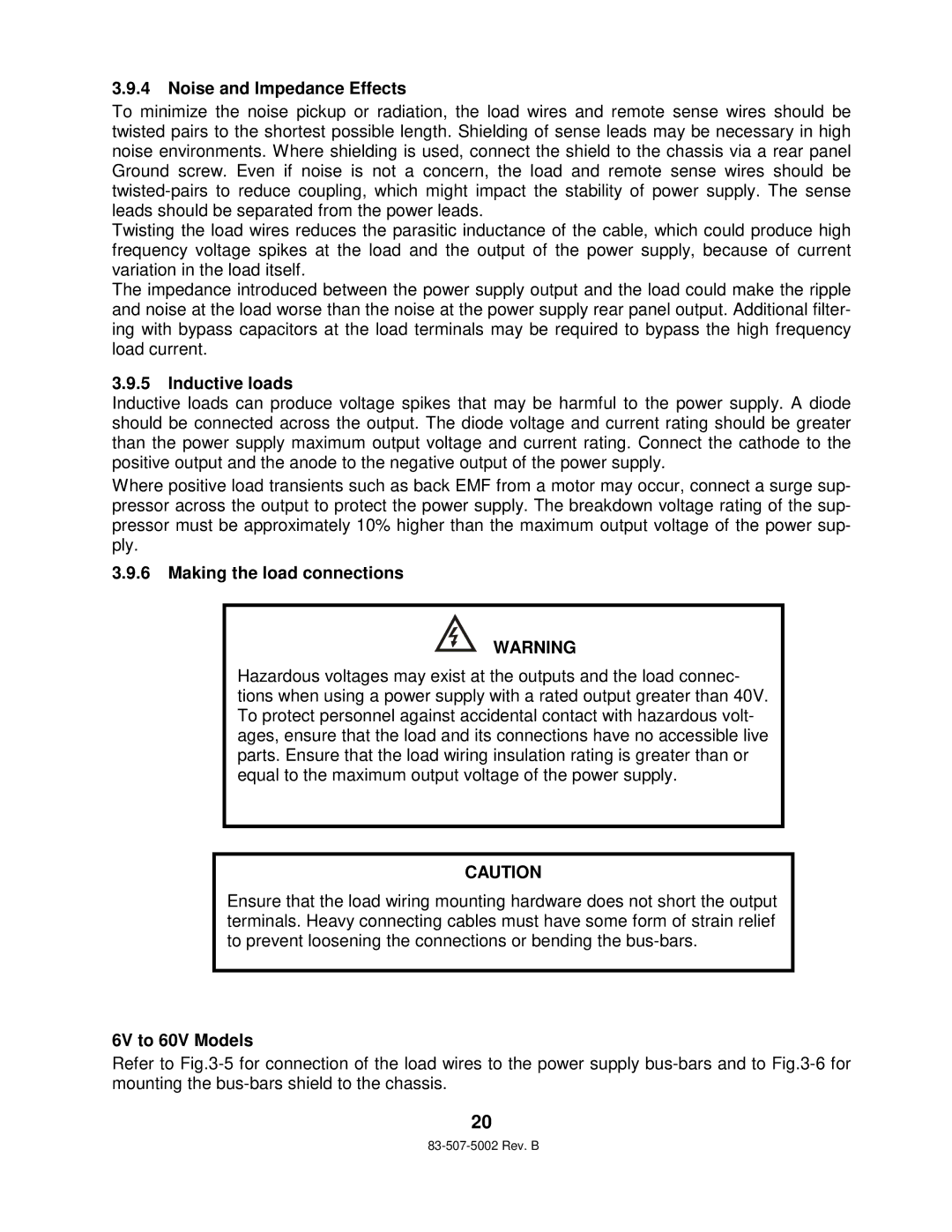
3.9.4Noise and Impedance Effects
To minimize the noise pickup or radiation, the load wires and remote sense wires should be twisted pairs to the shortest possible length. Shielding of sense leads may be necessary in high noise environments. Where shielding is used, connect the shield to the chassis via a rear panel Ground screw. Even if noise is not a concern, the load and remote sense wires should be
Twisting the load wires reduces the parasitic inductance of the cable, which could produce high frequency voltage spikes at the load and the output of the power supply, because of current variation in the load itself.
The impedance introduced between the power supply output and the load could make the ripple and noise at the load worse than the noise at the power supply rear panel output. Additional filter- ing with bypass capacitors at the load terminals may be required to bypass the high frequency load current.
3.9.5Inductive loads
Inductive loads can produce voltage spikes that may be harmful to the power supply. A diode should be connected across the output. The diode voltage and current rating should be greater than the power supply maximum output voltage and current rating. Connect the cathode to the positive output and the anode to the negative output of the power supply.
Where positive load transients such as back EMF from a motor may occur, connect a surge sup- pressor across the output to protect the power supply. The breakdown voltage rating of the sup- pressor must be approximately 10% higher than the maximum output voltage of the power sup- ply.
3.9.6Making the load connections
WARNING
Hazardous voltages may exist at the outputs and the load connec- tions when using a power supply with a rated output greater than 40V. To protect personnel against accidental contact with hazardous volt- ages, ensure that the load and its connections have no accessible live parts. Ensure that the load wiring insulation rating is greater than or equal to the maximum output voltage of the power supply.
CAUTION
Ensure that the load wiring mounting hardware does not short the output terminals. Heavy connecting cables must have some form of strain relief to prevent loosening the connections or bending the
6V to 60V Models
Refer to
20
